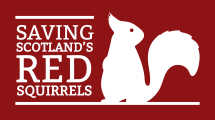…know how to contact us to make a complaint. To make sure everyone in our organisation knows what to do if a complaint is received. To make sure all complaints are investigated fairly and in a timely way. To make sure that complaints are, wherever possible, resolved and that relationships are repaired. To learn from complaints and feedback to help… […]
Read More…
Following the latest government guidelines, it has been agreed between Saving Scotland’s Red Squirrels and the Scottish Wildlife Trust that all volunteer work, with the exception of essential grey squirrel control volunteers, will be temporarily suspended with immediate effect. As we prepare for mainland Scotland to transition into Tier 4 restrictions from Saturday 26 December onwards, we are… […]
Read More…
…stop. You will not be covered by the Trust’s insurance policy while the suspension is in place, and will not be provided with additional materials. Volunteer expenses cannot be claimed for work carried out during this period. Survey volunteers Please do not travel to your feeder boxes while the suspension is in place. Grey squirrel control volunteers (including both… […]
Read More…
…of Conservation at the Scottish Wildlife Trust, the lead partner on the project, said “It’s fantastic to see the successes for red squirrels in Scotland due to the exceptional work put in by staff, landowners, and volunteers. It is essential now to recognise that this work needs to continue, and the recommendations detailed in the report are inputted into the… […]
Read More…
…Welfare (Scotland) Act 2006 provides for duty of care for animals in captivity (live-trapped animals). This makes it an offence to inflict, or allow others to inflict, cruelty or abuse on a grey squirrel held captive. The Wildlife & Countryside Act 1981 (as amended) makes it illegal to release, or allow to escape to the wild, any captive grey squirrel…. […]
Read More…
…carry pathogens and parasites to which our native wildlife has no or limited resistance. E.g. the grey squirrel carries the Squirrel pox virus, which has no effect on grey squirrels but is fatal to our native red squirrels. Invasive non-native species are having a significant cost to our economy. They are estimated to cost in the region of £2 billion… […]
Read More…
…contributing to an annual spring survey which involved 4 feeder visits over a 6 week period. All other fieldwork was conducted by staff. However, in more recent times, as grey squirrel density continues to drop – recently quite dramatically – in order to continue to remove grey squirrels at a rate exceeding their ability to reproduce, essentially, the north east… […]
Read More…
…allow us to access the additional equipment and resources required for monitoring activities and have the ability to collect samples once more. Volunteers will be notified when measures are in place for this activity to recommence. Volunteer groups Face-to-face group events and meetings will remain postponed for the time being. SSRS have been supporting volunteer network groups across Scotland digitally… […]
Read More…
…helped establish 17 dedicated and enthusiastic volunteer Local Network Groups across the region, providing them with the training and support they need to control grey squirrels and monitor, promote and protect red squirrels where they live. The majority of these groups now work independently from SSRS, although we continue to support these efforts via our Community Hub and necessary professional… […]
Read More…
…in the Central Lowlands can help to detect the early presence of squirrelpox, and how you can be proactive in reducing its impact. Squirrelpox was first confirmed in Scotland in 2005, having spread from northern England through non-native grey squirrels that are able to carry the virus unaffected. When spread to red squirrels however, the disease is deadly and… […]
Read More…
